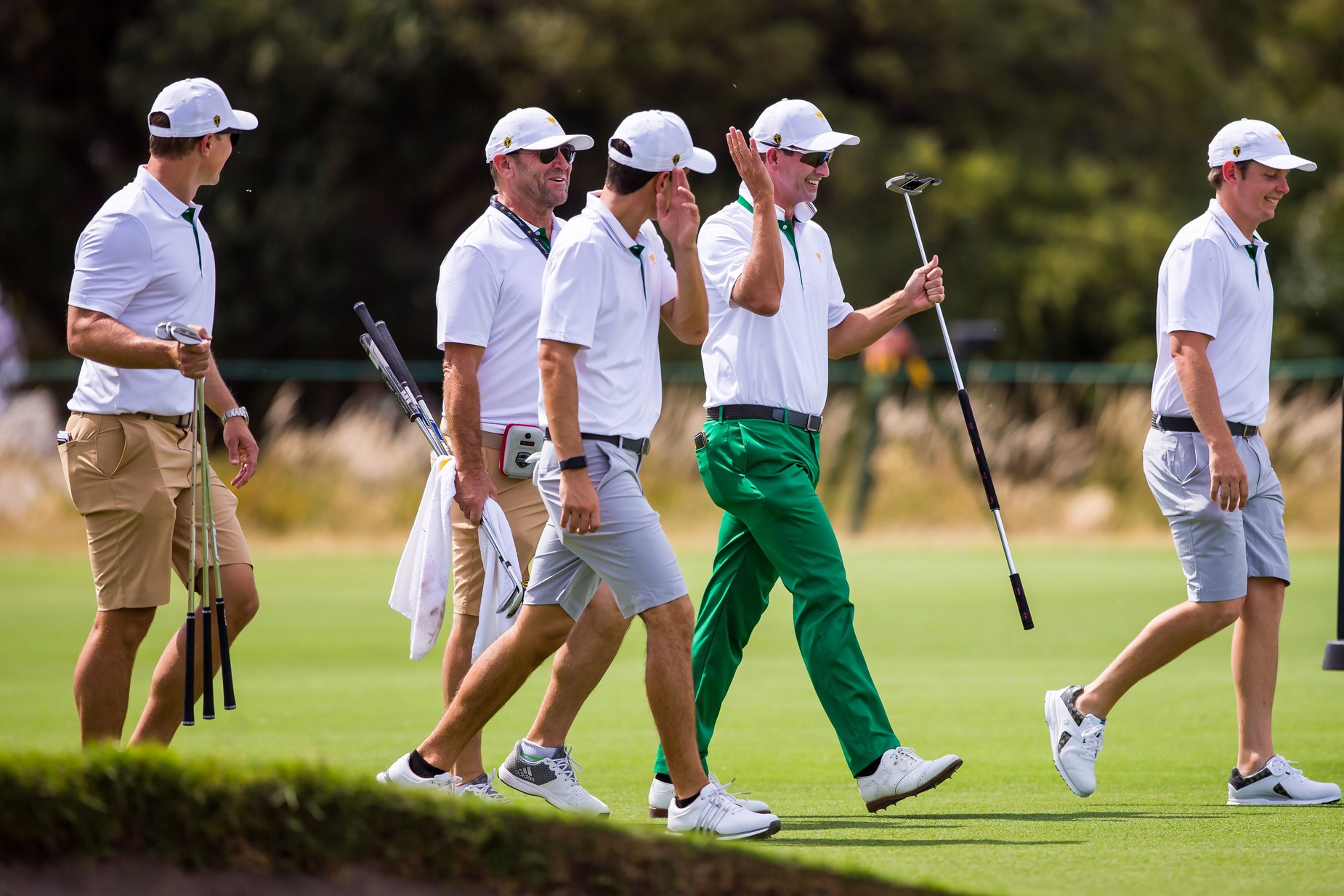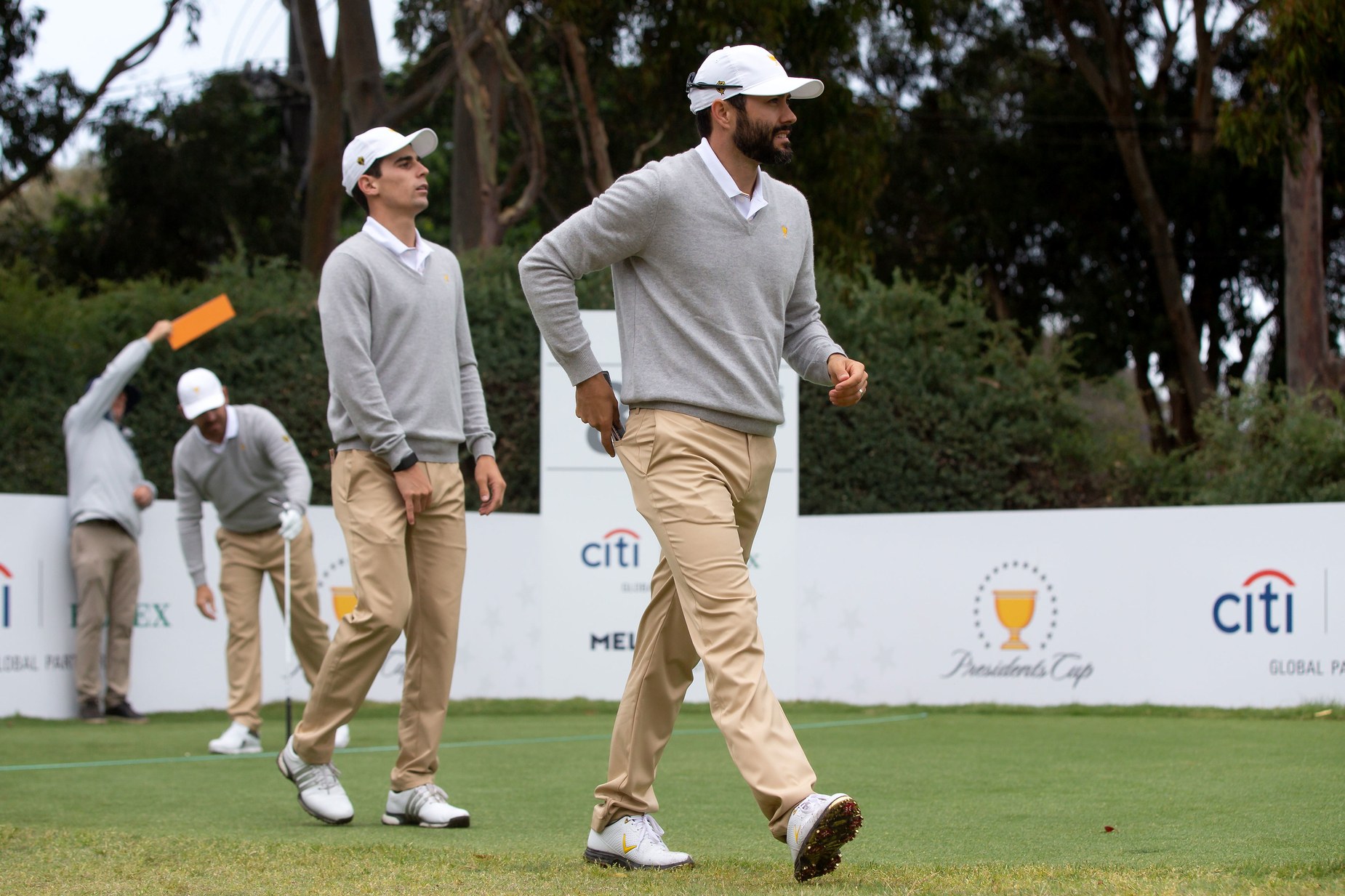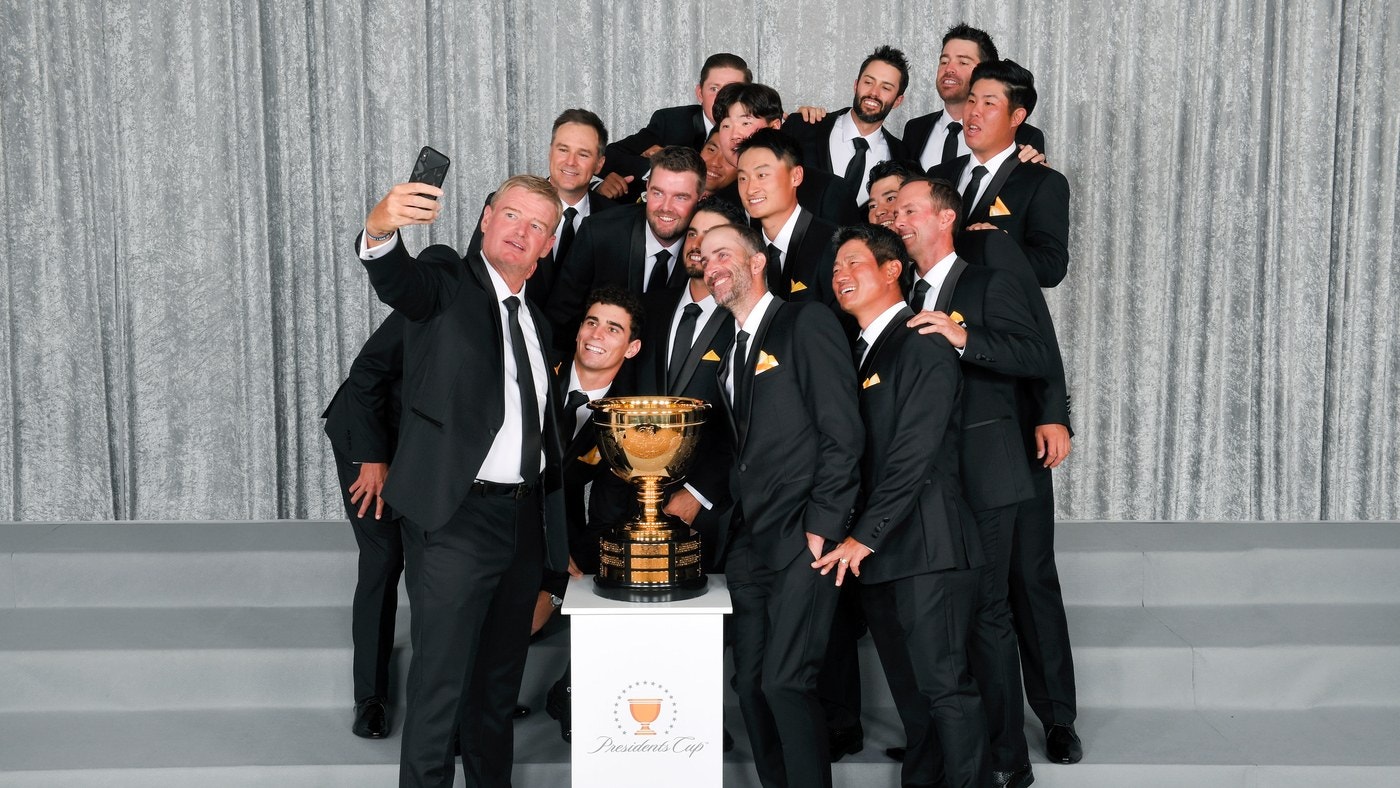By Dave Shedloski
MELBOURNE — Adam Scott was onto something, whether he knew it or not, when he recently advised his fellow Australians to curtail their enthusiasm for Tiger Woods at this week’s Presidents Cup.
“Last time it was too friendly,” the amiable Scott told the Herald Sun of Melbourne, referring to the 2011 Presidents Cup at Royal Melbourne Golf Club. That year, the U.S. won handily, with Woods scoring the clinching point, as part of its current streak of seven straight Cup victories. “Quite bluntly, we want the home-crowd advantage, and I’ll be disappointed if they are cheering enthusiastically for Tiger or anyone on the U.S. team.”
Of course, he singled out Tiger Woods, who not only remains the biggest draw in golf, but also this week assumes the dual roles of captain and competitor for the United States team.
RELATED: Two hats, one man—Tiger’s challenge as a modern playing captain
Making his ninth appearance for the International team, Scott wasn’t calling for unsavoury behaviour from the locals. But he does want the folks to be an authentic home crowd, and that’s not happening if their reception of Woods and his American team is a bit too friendly and enthusiastic, or not much different from their support of the International side.
“I’m not saying be a poor sport, but one challenge our team has always had is gaining a home-soil advantage,” Scott said. “While we appreciate them very much, we don’t have to cheer for them.”

Icon Sportswire
Team cohesion has been an issue for the Internationals in past Presidents Cups.
Within Scott’s words is the answer to a conundrum that has dogged the International team since its lone Presidents Cup victory at Royal Melbourne in 1998. There has been no central cohesive element, no rallying point for a team composed of players from every part of the world outside the U.S. except for Europe. Their different languages and cultures are a hurdle, yes, but Europe faces similar issues. What the Europeans do so well, as England’s Paul Casey once said, is “properly hate” the Americans for one week every two years.
Casey’s strong choice of words troubled some soft-hearted souls, but sensible people knew what he meant. There has to be an unabiding desire to beat the other side, whatever the sport or competition if victory is the objective. One has to hold the other side in utter disdain during the competition. That does not mean throwing aside sportsmanship. But save the backslapping and handshakes for the conclusion.
What should be the binding ingredient for captain Ernie Els and his International team in the upcoming 13th Presidents Cup? It’s really quite simple, and it’s not the new International Team logo that Els unveiled last year, one intended “to give the team a more unified focus.”
You want a unified focus? Try this mission:
Beat Tiger Woods.
Woods arguably is the greatest player of all time, having recently tied Sam Snead’s record of 82 PGA Tour titles. Though Woods’ Ryder Cup record is sub-standard, he has been decidedly more successful in the Presidents Cup, going 24-15-1, including 6-2 in singles. In addition to scoring the clinching point at Royal Melbourne in 2011, he did the same two years later at Muirfield Village. Woods is the captain of this team and only the second man, after Hale Irwin in the inaugural edition in 1994, to double as a competitor.
What better motivation can there be than beating Woods? To add to your legacy the scalp of the game’s most formidable winner is to forever dine out on the ultimate bragging rights.
“Right now, we just want to win,” said Canada’s Adam Hadwin, who debuted for the International team two years ago at Liberty National and had to swallow a spirit-puncturing eight-point setback that wasn’t even that close as the Americans came within a point of closing things out before Sunday singles. “But would beating Tiger make it more meaningful? I think I would have to say it would. He’s certainly the greatest player of our generation. Yeah, it would mean a lot more.”

Icon Sportswire
Hadwin walks to the fairway during a practice round at Royal Melbourne.
Fellow Canadian David Hearn, still looking to play in a Presidents Cup, agrees that latching onto the goal of beating Woods is a winning psychological strategy. “We’ve got to find something that is going to fire up the International side,” he said. “That’s probably a great way to bring everyone together.”
What would a victory mean to Woods and a U.S. squad that leads this series 10-1-1? Well, it would be worthy of celebrating, no question. The Americans want to win, too, especially after the disappointing effort in last year’s Ryder Cup in Paris. But would it be career-defining? Hardly.
To the Internationals, however, a triumph over a Woods-led team would be something to savor from next week all the way to their rocking chairs.
With only two players among the top 25 in the world (Scott at No. 15 and Hideki Maruyama at No. 20) and seven rookies on the squad, Els’ team is a decided underdog. The Internationals can play for pride or they can play for a piece of history they can share forever.
“I think seeing our guys beating the Americans would be great. It hasn’t happened in so long,” said Australia’s Aaron Baddeley, who went 1-3-1 on the 2011 squad in Melbourne. “Beating a team led by Tiger Woods, I think, would make it sweeter. You know what they say—winning means more when you beat the best.”









